Micro-influencer platforms are designed to meet this need, offering solutions that simplify the process of discovering, engaging, and managing influencers who resonate with specific audiences.
As influencer marketing continues to evolve, the ability to target niche markets and foster genuine engagement becomes crucial. Whether you're aiming to maximize ROI, streamline your campaign management, or simply explore new partnership opportunities, finding the right platform is key.
In this article, we explore and compare the top 12 micro-influencer platforms of 2025, providing you with the insights needed to choose the best tool for your brand’s unique needs. These platforms are more than just tools—they're gateways to building authentic connections that can elevate your marketing strategy to new heights.
Best for: Businesses and Brands of all sizes Top features: Influencer Discovery, Creator Relationship Management, Influencer Payments & Gifting, Affiliate Management Pricing: Available through a subscription model tailored to diverse needs, starting at $478 Channels: Instagram, Youtube, Facebook, Twitch, TikTok, Twitter, Pinterest Upfluence is your ideal micro-influencer platform, blending AI and eCommerce capabilities to propel your business to new heights. Its integration of AI/ChatGPT optimizes communications with creators and automates email generation, streamlining your influencer outreach. With its data-driven approach to influencer selection, you’ll connect with creators that truly resonate with your brand. The platform also offers unique features like automatic promo code generation. Upfluence’s tracking and analytics enable you to measure campaign ROI and influencer performance effectively, making it a robust tool for maximizing your influencer and affiliate marketing investments. Key Features: Influencer Search & Discovery, Relationship Management, Campaign Management, Third Party Analytics, Automated Recruiting, Influencer Lifecycle Management, Team Collaboration Tools, Content Review, Campaign Reporting, Audience Analysis, E-commerce Tools, Product/Gifting Tools, Payment Processing, Social Listening, Affiliate Management, Affiliate Campaigns, Channels: Instagram, Youtube, Facebook, Twitch, Tiktok, Twitter, Pinterest, Blogs Best for: SMEs to Large Enterprises Top Features: Discovery Tool, Influencer Directory, Audience Analysis, Campaign Management and Reporting, Streamlined Content Approval Workflow, Influencer CRM Pricing: Available on Request Channels: TikTok, Instagram, YouTube, Facebook, X (formerly Twitter), Twitch, etc. Brandwatch Influence is an intuitive platform with a suite of tools specifically curated for influencer marketing management Capable of tracking over 30 million creators and influencers, it enables businesses to easily find the right influencers for their campaigns. With Brandwatch Influence, you can build your own roster of micro influencers. The Discovery Tool helps you filter through millions of influencers and find those that have interests, values, and affinities aligned with your brand. Through a centralized Influencer Directory, you can view their contact details, payment information, and first-party data, which makes influencer management simpler and easier. These features also make it possible for you to build an influencer network you can invite to apply for other campaigns in the future. What makes Brandwatch great for enhancing brand engagement is that it not only helps you to find the right people but also allows you to streamline campaign workflows. You can customize and automate content approvals before campaign posts are published to make sure branded posts follow your set guidelines. A full overview of each campaign allows you to track performance to see which influencers have fulfilled their requirements and which ones are getting you the engagement you need. Powerful analytics also empowers data-driven decision-making with real-time reports and in-depth analysis of campaign impressions and brand engagement. To build loyalty and create a sense of belonging among your partner influencers, you can use your own branding to customize influencer dashboards and campaign reports. Increasing the visibility of your brand can nurture stronger connections and loyalty towards it. One company that leverages the influencer marketing platform of Brandwatch is Insta360, a Shenzhen-based company offering state-of-the-art cameras and accessories. Due to the nature of their products, their audience base spans different age segments and consumer interests. To reach their diverse audience, they had to work with multiple influencers, making campaign management a complex task. To streamline influencer management, they turned to Brandwatch Influence. The platform enabled them to amplify promotions and enhance engagement across different consumer segments. Aside from managing over 4,000 influencers more efficiently, Insta360 also benefits from lower campaign costs (approximately $0.0004 per view) and faster reporting (estimated to be 90x faster) through Brandwatch. “We can now do performance reports with one click. Before, it took five hours every time we wanted to do these reports. That’s a minimum 15 hours of reporting for one product launch. Now, we spend around ten minutes.” — Alex Garcia. Head of Partnerships at Insta360 Insta360 is just one of hundreds of businesses using the Brandwatch Platform. Some of the global brands that work with Brandwatch are Toyota, Samsung, Carlsberg, The Body Shop, L’Oreal, and Nestle. Aside from the trust accorded to them by businesses, Brandwatch has also time and again won the hearts of award-giving bodies and institutions. Within the last five years alone, it was named a leader in the 2020 Forrester Wave for Social Listening Platforms, won the Best Use of Data & Insight category at the International Content Marketing Awards, and topped the Social Media Category of The Sammy Award Program Sales and Marketing Technology Awards. Last year, it was chosen as the Best Influencer Marketing Platform by both the Digiday Technology Awards and the Martech Breakthrough Award. Without a doubt, Brandwatch Influence is a reliable and reputable platform for influencer marketing. Used with the Consumer Intelligence and Social Media Management suites, it becomes a powerful partner for business growth. The only downside is perhaps the steep cost. But if you consider the potential returns you can get from enhanced brand engagement, investing in Brandwatch can be worthwhile. Key Features: Global Influencer Payment, Influencer Discovery, Influencer directory management, Creation of private influencer network, Campaign management and reporting, Broad platform coverage, Automated reporting, Channels: YouTube, Facebook, Instagram, Twitter, Twitch, TikTok, Shopify Best for: Brands of all sizes Top features: Influencer Discovery, Influencer Management, Payments, Campaign Tracking & Analytics Pricing: Three pricing plans, starting at $99/month Channels: Instagram, TikTok, YouTube If you’re looking for a micro-influencer marketing platform that delivers unparalleled accuracy and flexibility, Modash is a top contender. Founded in 2018 and headquartered in Tallinn, Modash has quickly established itself as a leader in the influencer marketing space, offering robust tools to help brands and agencies make data-driven decisions. Modash stands out for its granular influencer discovery capabilities. The platform allows you to search and filter influencers based on detailed criteria such as audience demographics, locations, and interests. This precision ensures that you can find the perfect micro-influencers to represent your brand, aligning closely with your target audience. Moreover, Modash’s advanced fraud detection tools let you verify influencer credibility by checking for fake followers, engagement rates, and more. This transparency is critical in an industry where authenticity and trust are paramount. For those looking to integrate influencer marketing data into their existing workflows, Modash offers a versatile API that’s both flexible and easy to use. Whether you want to build custom solutions, enhance existing data, or create branded reports, Modash’s API provides the raw data necessary to power your projects. The platform is fully transparent about its capabilities, offering publicly available API specifications and testing credits so you can be confident in its performance before committing. This level of openness ensures that you’re fully equipped to make informed decisions and build effective influencer marketing strategies. Key Features: Campaign Management, Influencer Discovery, Influencer Analytics, Influencer Campaign Monitoring, Influencer Management, Best for: Brands and Agencies of all sizes Top features: Brand-Creator Connection, Influencer Outreach, Affiliate Campaigns, Account Managing Pricing: Pricing starts with the Self-Service plan at $460/month, going up to the Bespoke plan at $3,495+/month Channels: Instagram, YouTube, TikTok When it comes to scaling and automating influencer marketing campaigns, Creator.co stands out as a robust solution designed for both brands and influencers. The platform’s ability to streamline connections and collaborations is a game-changer in the influencer marketing space, offering a one-stop-shop for brands looking to increase their reach and influencers seeking meaningful partnerships. Creator.co offers an extensive range of services that cater to both influencer and affiliate marketing needs. With access to over 250 million influencers across major platforms like TikTok, Instagram, YouTube, Twitter, Twitch, and Pinterest, Creator.co ensures that brands can easily find and collaborate with the right creators to drive content creation, boost brand awareness, and increase revenue. The platform’s advanced search filters and analytics tools simplify the recruitment process, allowing marketers to build and manage campaigns efficiently. Additionally, Creator.co’s affiliate marketing services empower brands to either enhance existing programs or create new ones, all within a single ecosystem. One of the standout features of Creator.co is its user-friendly dashboard, which consolidates all campaign activities, from content creation to payment processing, in one place. This not only saves time but also reduces the complexities often associated with managing multiple influencer and affiliate campaigns. Brands benefit from the platform’s ability to automate workflows, making it easier to scale their efforts without sacrificing quality. The platform also offers dedicated account managers who provide expert support, ensuring that each campaign is tailored to meet specific brand objectives. Whether you’re looking to raise ROI through user-generated content, enhance audience engagement, or tell a deeper brand story, Creator.co provides the tools and support needed to achieve these goals effectively. Aura partnered with the micro-influencer marketing platform, Creator.co, to streamline its influencer recruitment process and improve the efficiency of its campaigns. Aura faced challenges in finding and managing high-quality influencers for their personalized hair care products. They approached Creator.co to leverage its creator dashboard and search tool, aiming to save time and enhance their influencer marketing efforts. Creator.co implemented a Self-Serve subscription model for Aura, allowing the brand to autonomously search for and engage with micro-influencers who aligned with their brand values. The platform’s tools enabled Aura to identify 20 suitable creators, optimize campaign management, and monitor performance metrics such as engagement and reach. By automating the recruitment process, Creator.co ensured that Aura could focus on content quality while reducing time spent on administrative tasks. Key Features: Search/Discovery, Automated Recruiting, Influencer Relationship Management, Influencer Marketplace, Content Review, Content Library, Campaign Management, Campaign Reporting, Influencer Analysis, Audience Analysis, E-commerce Tools, Product/Gifting Tools, Fake Follower/Fraud Detection, Payment Processing, Social Listening, Competitor Research, Creator Marketplace, Channels: Instagram, YouTube, TikTok Best for: Ecommerce brands of all sizes Top features: Community Engagement, Shoppable Content, LTK App, Analytics and Performance Metrics Pricing: Three pricing plans are available, beginning with Connect Launch at $417/month (paid annually at $5,000) Channels: YouTube, Instagram, TikTok, Snapchat, Facebook, Twitter, Pinterest If you’re looking to scale your micro-influencer marketing efforts with precision and proven ROI, LTK stands out as a top-tier platform that caters to brands of all sizes. Founded in 2011, LTK has evolved into a global powerhouse, driving billions in annual sales for over 7,000 global retailers. Its extensive experience and proprietary data offer brands unparalleled insights and tools for building effective influencer marketing campaigns. Whether you’re a small DTC brand or a large enterprise, LTK provides robust solutions tailored to your needs. LTK’s platform offers a range of options specifically designed to help brands connect with micro-influencers. With LTK Connect, brands can access a self-serve product that facilitates the entire influencer marketing process—from creator discovery and campaign management to full-funnel performance reporting. What sets LTK apart in micro influencer marketing is its ability to empower brands to not only find the right creators but also to measure their impact comprehensively. LTK’s 360 reporting tools deliver deep insights, allowing you to track campaign performance, optimize strategies, and ensure that every dollar spent contributes to your goals. LTK’s Marketplace transforms the traditional influencer search model into a dynamic, two-way connection. Here, creators can pitch collaborations to brands, making it easier for you to discover creators who are genuinely interested in your brand. This marketplace model is particularly beneficial for micro influencer marketing, where the authenticity and relevance of partnerships are key to success. Moreover, LTK’s platform is designed with scalability in mind. As your needs grow, so do the capabilities of the platform, allowing you to seamlessly transition from managing small-scale collaborations to running large, impactful campaigns. The access to millions of shoppers through LTK’s top-rated consumer-focused app further amplifies the reach and effectiveness of your micro influencer campaigns. Abercrombie & Fitch partnered with the micro-influencer marketing platform LTK to enhance their influencer marketing efforts in the UK. Following a successful Q4 campaign in 2021, the brand sought to drive traffic and sales through long-term collaborations with micro-influencers. LTK’s platform was chosen for its ability to effectively manage and scale these influencer partnerships. For Cyber Week, LTK leveraged its proprietary dashboard to select eight Creators who were already demonstrating strong sales impact for Abercrombie & Fitch and its competitors. The LTK team managed negotiations with influencers and provided comprehensive briefing documents, which included content guidelines to ensure alignment with brand expectations. This proactive approach helped streamline the content creation process and avoid delays. The campaign achieved a 56% increase in sales year-over-year (YoY) and a 66% rise in clicks, surpassing Abercrombie & Fitch’s goals. The brand reached 3.9 million unique consumers across Instagram and YouTube, and achieved a 4.1x ROI, doubling the KPI of 2. The engagement rate also exceeded expectations at 3%, and the campaign inspired a 40% increase in organic content from non-campaign Creators on the LTK platform. Reflecting on the collaboration, Hanne Fiksdal, Senior Marketing Manager EMEA Affiliates at Abercrombie & Fitch, noted: Key Features: Search/Discovery, Content Review, Campaign Management, Campaign Reporting, Influencer Analysis, Audience Analysis, Product/Gifting Tools, Forms and Compliance, Payment Processing, Channels: Instagram, TikTok, YouTube, Facebook, Pinterest, Twitter, Blogs, LTK App Best for: Medium and Large Companies Top features: Influencer Identification & Recruitment, Reporting, Content Approval, Data Important and Exporting Tools Pricing: Pricing starts with the Starter plan at €15,900.00, going up to the Enterprise package (available upon request). 4 packages are available in total. Channels: Facebook, Twitter, Instagram, TikTok, YouTube Skeepers is a powerhouse in the European market, known for its comprehensive solutions that enhance shopper engagement. If you’re looking to scale your influencer marketing efforts, particularly with micro and nano influencers, Skeepers offers a robust platform that simplifies and automates the entire process, from influencer discovery to campaign management. Skeepers’ platform is designed to streamline the process of working with micro and nano influencers, offering access to a community of over 100,000 pre-vetted creators. Whether you’re launching a product or promoting seasonal campaigns, Skeepers makes it easy to connect with influencers who align with your brand’s ethos. The platform’s intuitive interface allows you to manage large-scale campaigns efficiently, ensuring that your brand message reaches the right audience. By leveraging Skeepers’ Personal Profile feature, you can fine-tune your search and collaborate with influencers who can generate high-quality user-generated content (UGC) that resonates with your target market. One of the standout features of Skeepers is its automated UGC collection and rights management system. This ensures that you not only gather authentic content but also have the legal permissions to use it across your marketing channels. Skeepers centralizes all your shoppable content, making it easily accessible and actionable. The platform also provides real-time data analytics, giving you crucial insights into your campaign’s performance. With API integration, you can track key performance indicators (KPIs) and make data-driven decisions to optimize your campaigns. Make Up For Ever, a prestigious LVMH beauty brand, partnered with Skeepers, a micro-influencer marketing platform, to overcome challenges in generating high-quality gifted reviews. The brand had previously struggled with low ship-to-post rates and subpar review quality, which hindered campaign effectiveness and consumer engagement. Seeking a more reliable solution, Make Up For Ever transitioned to Skeepers after testing other providers. Skeepers provided Make Up For Ever with enhanced campaign setup options and precise targeting capabilities. These tools allowed the brand to reach a knowledgeable and genuinely interested community of micro-influencers, resulting in authentic and engaging reviews. The platform’s advanced targeting options, such as skincare preferences and age range, ensured that the reviews were relevant and of high quality. Skeepers emphasized organic, experience-based feedback rather than scripted claims, allowing influencers to naturally convey their product experiences. The collaboration with Skeepers led to a dramatic increase in Make Up For Ever’s ship-to-post rate from 40% to an outstanding 97%, more than doubling their previous results. The brand generated close to 1,000 authentic reviews across Sephora and their e-commerce platform, achieving an average star rating of 4.7 out of 5.0 and a recommendation rate of 95%. Key Features: Campaign Management, Influencer Discovery, Social Media Monitoring, Faceted Search / Filtering, Channels: Tik Tok, Instagram, Shopify, Retail Sites, Brand Website Best for: Brands and Agencies of any size Top features: Profiles Management, Branded Landing Pages, Post Campaign Reporting, Source & Connect Pricing: Packages start at $99/month. You can also get started with a 14-day free trial. Channels: Instagram, Facebook, YouTube, TikTok Kitly Business is a versatile micro-influencer platform focusing on the efficient management of talent and creator collaborations. Its unique feature of creating multiple media kits and tracking branded content performance is ideal for your brand’s influencer showcase. The direct link to social accounts for live media and performance insights is an invaluable tool for informed, real-time marketing decisions. Kitly Business prioritizes efficient and professional influencer relationship management, both on and off social media. It streamlines the process of managing contracts, campaigns, and deliverables, ensuring a smooth influencer marketing experience. Key Features: Search/Discovery, Automated Recruiting, Team Collaboration Tools, Content Review, Content Library, Campaign Management, Campaign Reporting, Influencer Analysis, Audience Analysis, White Label Reporting, Channels: Instagram, Facebook, Youtube and Tiktok. Best for: Medium and Large-sized Brands and Companies Top features: Creator Marketplace, Creative Brief, Direct Chat, Campaign Management, Influencer Payments, and Copyrights Pricing: Incense offers four pricing packages, beginning with UGC at $400/month and scaling up to Advanced at $1,500/month. Save more by paying annually. Channels: Facebook, Instagram, TikTok Insense is a highly effective micro-influencer platform. Its diversity in influencer range, from micro-level creatives to well-known influencers, makes it exceptional for creating tailor-made, high-quality content. The platform’s centralized dashboard is a standout feature, enabling you to efficiently manage all aspects of influencer marketing, from outreach to campaign execution. This comprehensive approach ensures smooth management of creator collaborations and marketing strategies. Furthermore, Insense’s commitment to customer service enhances your experience, positioning it as an ideal choice for leveraging micro-influencers for impactful storytelling and audience engagement. Key Features: Content Amplification, Search/Discovery, Automated Recruiting, Influencer Relationship Management, Influencer Marketplace, Content Review, Content Library, Campaign Management, Campaign Reporting, Influencer Analysis, Audience Analysis, E-commerce Tools, Product/Gifting Tools, Fake Follower/Fraud Detection, Payment Processing, Influencer Whitelisting, Creator Marketplace, Channels: TikTok, Instagram, Facebook Best for: Medium to Large Brands and Agencies Top features: Content Approval, Influencer Recruitment, Influencer Vetting and Compliance, Data Importing and Exporting Tools, Influencer Collaboration, UGC Pricing: Three packages, starting at $6/month with The Creator Marketplace package and scaling up to their Managed Services package at $100,000/month. Channels: Instagram, TikTok, YouTube IZEA is a formidable micro-influencer platform for brands and agencies aiming to capitalize on influencer dynamics. Its innovative open bidding system introduces a competitive element to influencer engagements. The platform is particularly skilled at handling extensive influencer campaigns and providing insightful performance metrics. This is crucial for your brand, especially when focusing on optimizing ROI by aligning with influencers whose audience engagement matches your brand’s objectives. IZEA’s range of services, including keyword search and direct negotiations, makes it a comprehensive and versatile choice, ideal for data-driven influencer relationships. Key Features: Search/Discovery, Automated Recruiting, Influencer Relationship Management, Influencer Marketplace, Team Collaboration Tools, Content Review, Content Library, Campaign Management, Campaign Reporting, Influencer Analysis, Audience Analysis, Visual Discovery, Influencer Content Amplification, Channels: Facebook, Instagram, LinkedIn, Twitter, Tumblr, YouTube, Pinterest, Twitch, TikTok, Wordpress and other Blogs Best for: Brands and Agencies of all sizes Top features: Content Approval Workflow, Campaign Effectiveness Tracking, Influencer Recruitment, UGC, Reporting and Dashboards, Audience Analysis Pricing: Two pricing plans available upon request Channels: Instagram, Tiktok, Pinterest TRIBE is a standout micro-influencer platform, particularly for brands and agencies like yours that are seeking a tech-driven approach to influencer marketing. Its automated features for aspects like product sampling and approval processes streamline the collaboration between your brand and influencers. The platform is notable for providing a seamless onboarding experience and robust customer support, making it a great choice for those new to micro-influencer marketing. TRIBE’s focus on micro-influencer campaigns means your brand can effectively leverage the authenticity and targeted reach of smaller-scale influencers, ensuring a more personalized and engaging marketing approach. Best for: Large-sized Brands and Agencies Top features: Influencer Recruitment, AI-Powered Insights, Fraud Detection and Prevention, Data Importing and Exporting Tools, Social Commerce, Influencer Collaboration, eCommerce Integration, Audience Analytics Pricing: Available upon request Channels: Facebook, Instagram, Twitter, YouTube, TikTok CreatorIQ emerges as a premium choice for investing significantly in influencer marketing. The platform excels in upscaling content production while enhancing customer loyalty and reach. Features like API integration and competitor benchmarking provide a sophisticated, data-driven approach to influencer marketing. Its interface simplifies campaign management, from discovery to execution, making it an ideal tool for businesses focused on leveraging the power of micro-influencers for expansive marketing goals. With advanced reporting and insights, CreatorIQ ensures that you can track the efficacy of your micro-influencer strategies with precision. Key Features: Search/Discovery, Automated Recruiting, Influencer Relationship Management, Content Review, Campaign Management, Campaign Reporting, Influencer Analysis, Audience Analysis, E-commerce Tools, Product/Gifting Tools, Forms and Compliance, Fake Follower/Fraud Detection, Payment Processing, Channels: Facebook, Instagram, Twitter, YouTube, Pinterest, Twitch, Blogs Best for: Large-Scale eCommerce brands Top features: Personalization, Influencer Management, UGC, Audience Analytics, Ambassador and Loyalty Programs, Target Audience Identification, Reporting and Dashboards, Social Commerce Pricing: Available upon request; demo available Channels: TikTok, Instagram, Facebook, Twitter, LinkedIn, YouTube Mavrck is a compelling platform that enables brands like yours to discover and cultivate relationships with a wide range of creators. Its versatility in managing multiple campaigns simultaneously while focusing on ROI is a significant advantage. Mavrck’s referral program adds an extra dimension to your influencer campaigns. Coupled with its full-stack content creation services, Mavrck stands out as a highly efficient platform for maximizing your investment in micro-influencer marketing. Key Features: Search/Discovery, Influencer Relationship Management, Campaign Management, Campaign Reporting, Influencer Analysis, Audience Analysis, E-commerce Tools, Channels: Facebook, Instagram, YouTube, Pinterest,TikTok, Twitter, Twitch, Blogs Best for: Businesses of all sizes Top features: Influencer Gifting, Relationship Management, Creator Payments, Reporting & Analytics, Content Management, Fake Influencer Tool Pricing: Available on request Channels: Instagram, Facebook, Twitter, YouTube, TikTok, LinkedIn, Pinterest, Shopify GRIN is a powerful micro-influencer platform tailor-made for enhancing authentic content-creator relationships, vital for your brand’s growth. With GRIN, the intricacies of influencer marketing, from influencer sourcing to handling logistics like product seeding, are integrated into an intuitive, user-friendly interface. It shines in discovering and nurturing brand-aligned ambassadors, critical for building long-lasting influencer partnerships. The depth of its reporting tools, offering custom reports and KPI tracking, is invaluable in analyzing and refining your campaigns. GRIN’s integration with various social platforms and eCommerce solutions further enhances its utility, making it your ideal partner for scaling influencer marketing initiatives. Key Features: Content Amplification, Search/Discovery, Influencer Lifecycle Management, Influencer Relationship Management, Content Review, Content Library, Campaign Management, Campaign Reporting, Influencer Analysis, Audience Analysis, E-commerce Tools, Product/Gifting Tools, Forms and Compliance, Channels: Facebook, Instagram, TikTok, Twitter, Twitch, YouTube1. Upfluence


2. Brandwatch Influencer Marketing Software

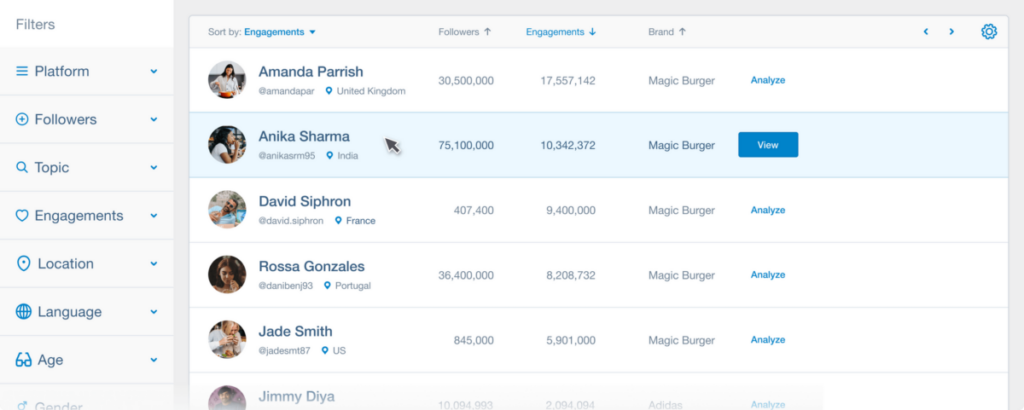
Streamlined Campaign Management & Enhanced Engagement
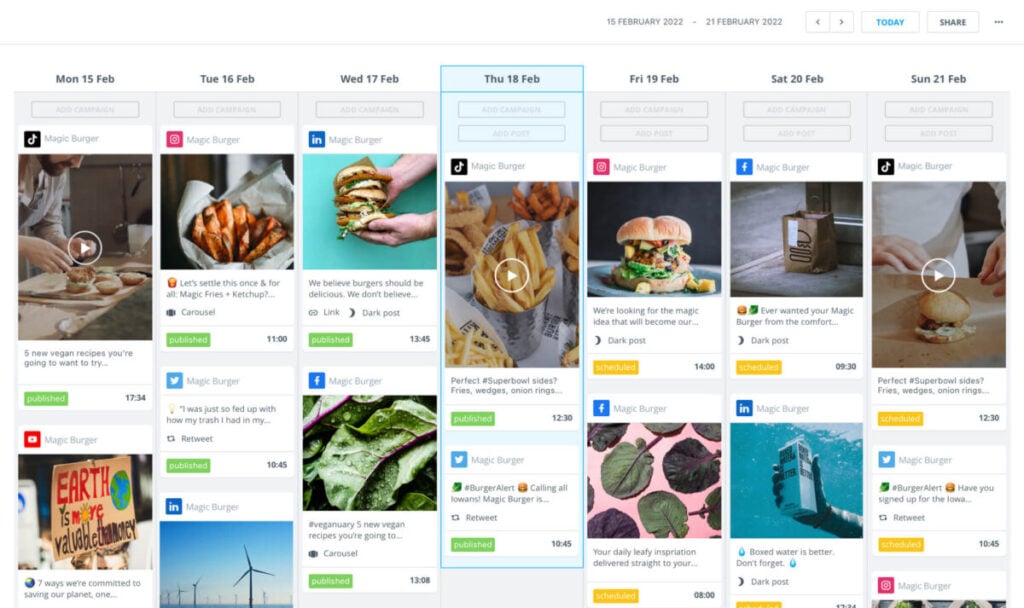
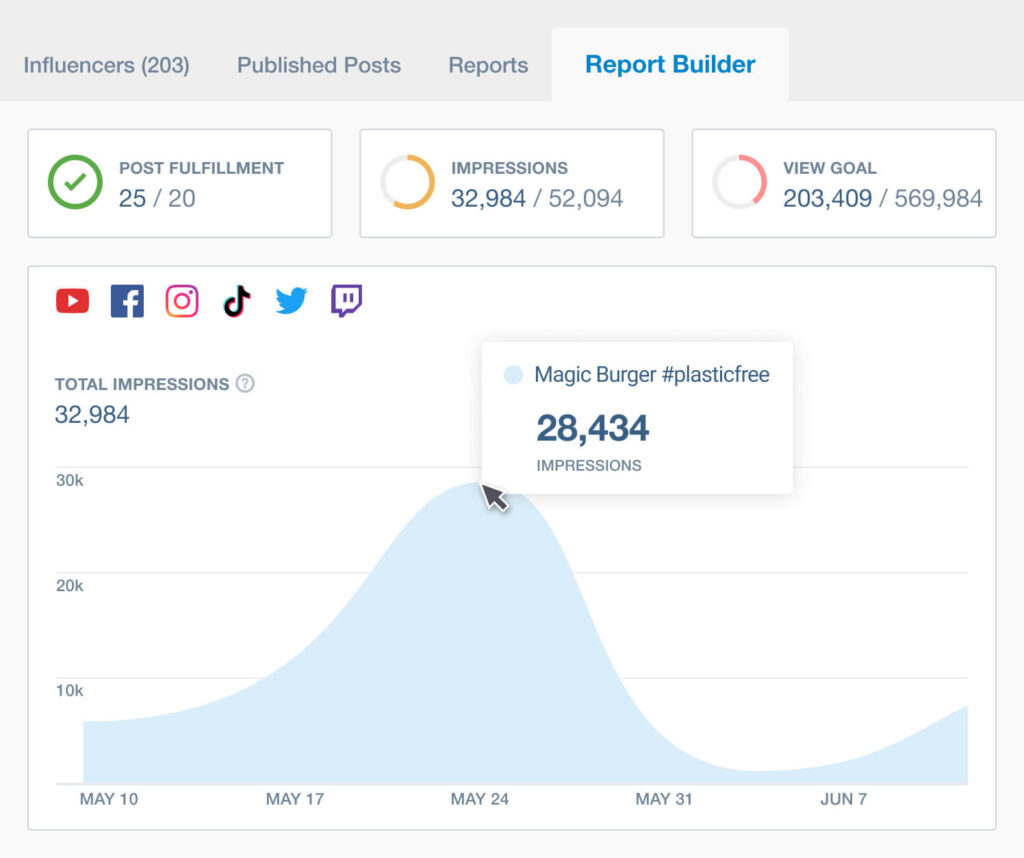
Case Study

Strategic Approach
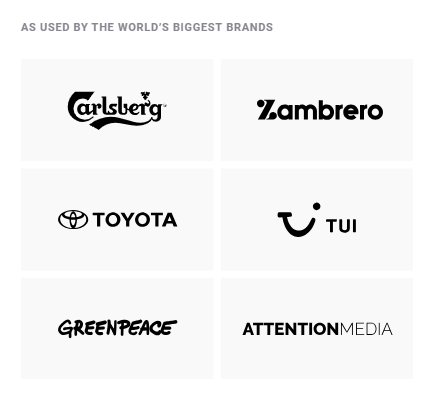
Award-Winning Influencer Platform
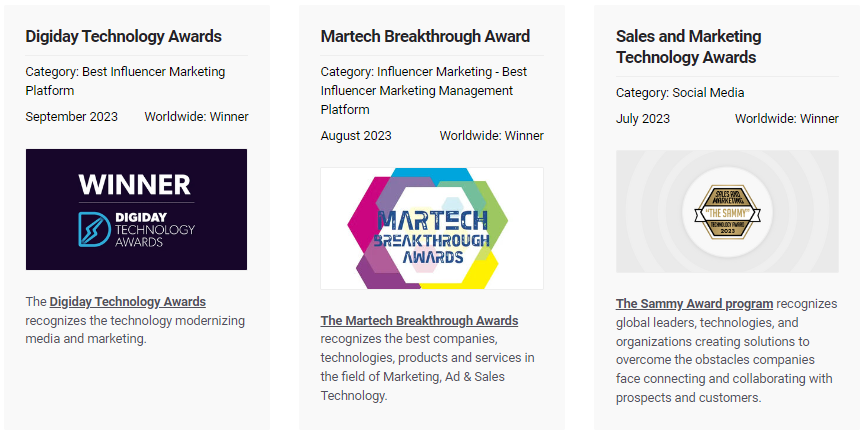

3. Modash

Powerful Influencer Discovery and Fraud Detection
Versatile and Transparent API Integration
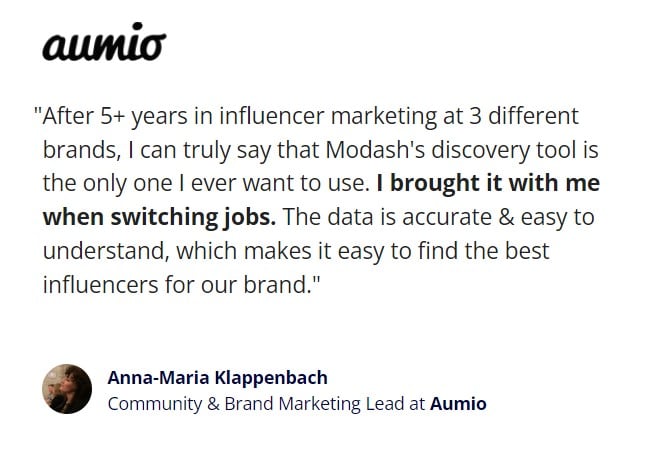

4. Creator.co

Comprehensive Influencer and Affiliate Marketing Services
A User-Friendly Platform with Advanced Capabilities
Case Study
Strategic Approach
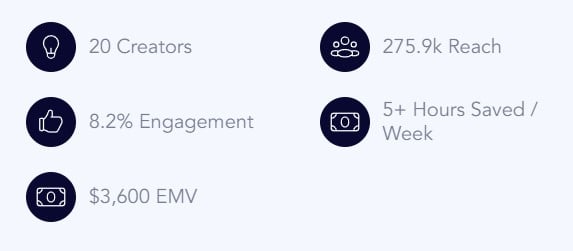

5. LTK (formerly rewardStyle)

Comprehensive Solutions for Micro Influencer Marketing
Empowering Creators and Brands with a Dynamic Marketplace
Case Study
Strategic Approach
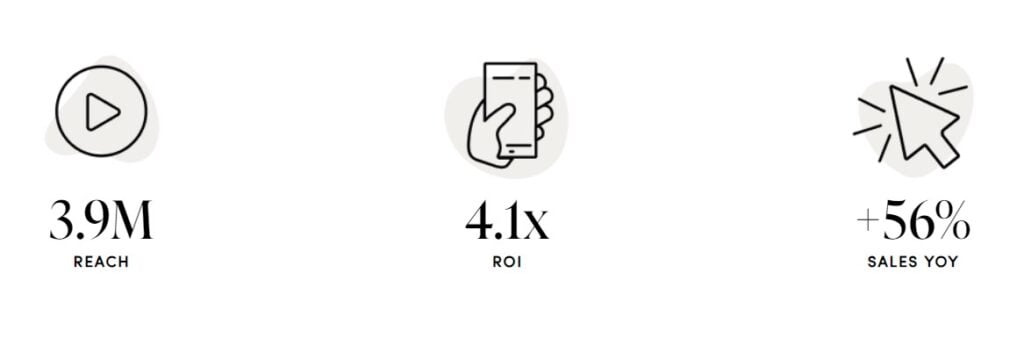

6. Skeepers

Effortless Collaboration with Micro and Nano Influencers
Advanced UGC Management and Real-Time Analytics
Case Study
Strategic Approach



7. Kitly Business


8. Insense


9. IZEA


10. TRIBE

11. CreatorIQ


12. Later Influence


13. Grin


What is a Micro-Influencer Platform?
A micro-influencer platform is a specific type of influencer marketing platform that focuses primarily on connecting brands with micro-influencers. These are influencers who typically have a smaller, but highly engaged, following—usually between 10,000 and 100,000 followers. Such platforms are designed to capitalize on the unique advantages that micro-influencers offer.
Here's a detailed look at these platforms:
By focusing on influencers with smaller but highly engaged and niche-focused followings, these platforms offer unique opportunities for brands to connect with specific audiences in a more authentic, personal, and cost-effective manner.
Benefits of Using a Micro-Influencer Platform
Micro-influencer platforms have emerged as a pivotal tool for brands seeking to enhance their online presence. These platforms offer a multitude of benefits that can significantly elevate a brand's marketing strategy. Let's see what those are.
Targeted Audience Reach
These platforms provide a hub where brands can connect with influencers who boast followers typically between 10,000 to 100,000, combining the appeal of a targeted audience reach with the power of genuine engagement. Brands leveraging these platforms gain direct access to niche audiences, ensuring their marketing efforts resonate with the most relevant and interested consumers.
Authentic Engagement
Authentic engagement remains a cornerstone of influencer marketing, with 49% of consumers depending on influencer recommendations. Micro-influencers are renowned for their authentic and personal connections with their followers, leading to higher engagement rates, increased trust, and amplified brand credibility.
Cost-Effectiveness
Regarding budget allocation, 23% of marketers are now inclined to invest more than 40% of their marketing budget into influencer partnerships, with a focus on micro-influencers due to their cost-effectiveness. These influencers offer a more affordable alternative to their macro counterparts, making them ideal for businesses of all sizes. The platforms serve as a cost-efficient gateway to a diverse array of influencers, aligning with both budget constraints and campaign objectives.
Increased ROI
Micro-influencer marketing is not just about affordability; it's about effectiveness. Approximately 51% of marketers report acquiring better customers through influencer marketing, which is a testament to the pre-established trust influencers have with their audience. The platforms help brands achieve a higher return on investment, with data showing that influencer marketing campaigns can yield an average of $5.78 for every $1.00 spent, and 42% of marketers rank it as a top ROI-generating approach.
Versatility, Innovation, and Long-Term Collaboration
The versatility and innovative potential of micro-influencers make these platforms a breeding ground for creativity. With 67% of marketing teams preferring campaign-based partnerships, these collaborations are structured for easier management and clear KPIs. Moreover, the preference for engagement as a primary KPI by 77% of marketers underscores the shift towards quality interactions, with 56% of marketers engaging in repeat collaborations to build trust and consistency.
Platform Preferences and Payment Trends
While Instagram remains the preferred platform for 72% of influencer marketing campaigns, TikTok's rapid ascension to 61% usage among marketers illustrates the dynamic nature of the landscape. Payment methods are also evolving, with a move from free samples towards fair monetary compensation, especially as the influence and market share of micro-influencers continue to grow—commanding a 91% market share in 2021 and offering engagement rates as high as 3.86% on platforms like Instagram.
Brands That Can Benefit from Micro-Influencer Platforms
Micro-influencer platforms are not just a trend; they are a strategic tool that can benefit a wide array of brands across various industries.
- Fashion and Beauty Brands: These sectors thrive on personal recommendations and visual content. Micro-influencers can provide authentic endorsements and tutorials that resonate with their followers, making them ideal for fashion and beauty brands. By showcasing how products look and perform in real life, they bridge the gap between aspiration and reality. Additionally, micro-influencers' niche audiences often yield higher engagement rates, which can lead to more effective campaigns. An example of how these brands can use influencer marketing platforms to run marketing campaigns is the case of Scentuals, a well-known skincare and beauty brand. Utilizing Creator.co's platform to collaborate with more than 100 creators, they increased their sales by 70% and achieved $3,850 in EMV.
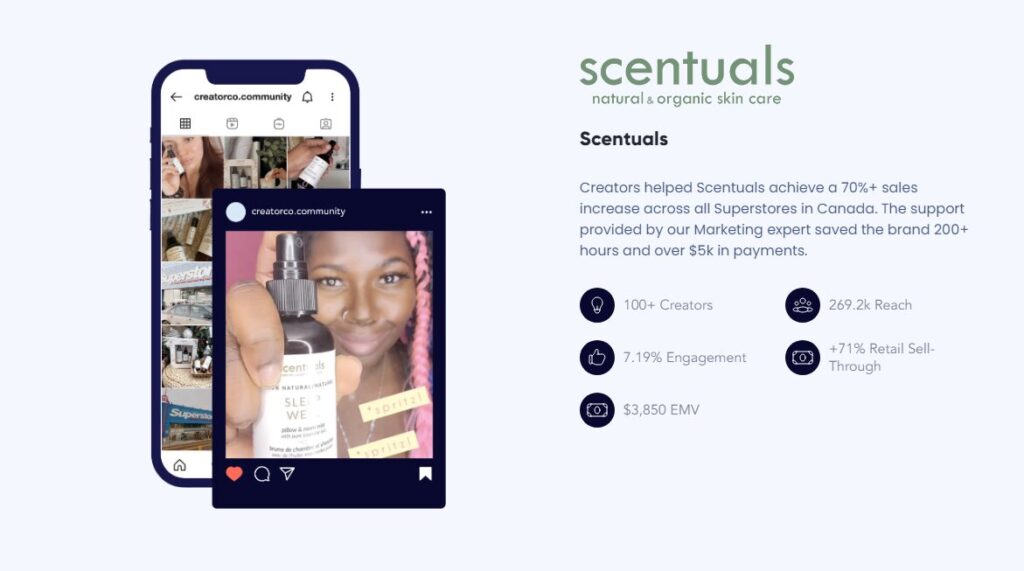
- Tech and Gadget Companies: Tech enthusiasts often seek advice and reviews from trusted sources. Micro-influencers in the tech space can offer honest reviews and demonstrations, influencing their tech-savvy followers' purchasing decisions. Their ability to demystify technology and present it in an accessible manner helps cultivate an informed community. Furthermore, their specialized knowledge can help highlight a product's unique features and benefits. An exemplary case is Grin's collaboration with Uber, where the ride-sharing giant utilized Grin's influencer marketing platform to build a robust presence on TikTok, demonstrating the power of targeted influencer strategies in the tech world.
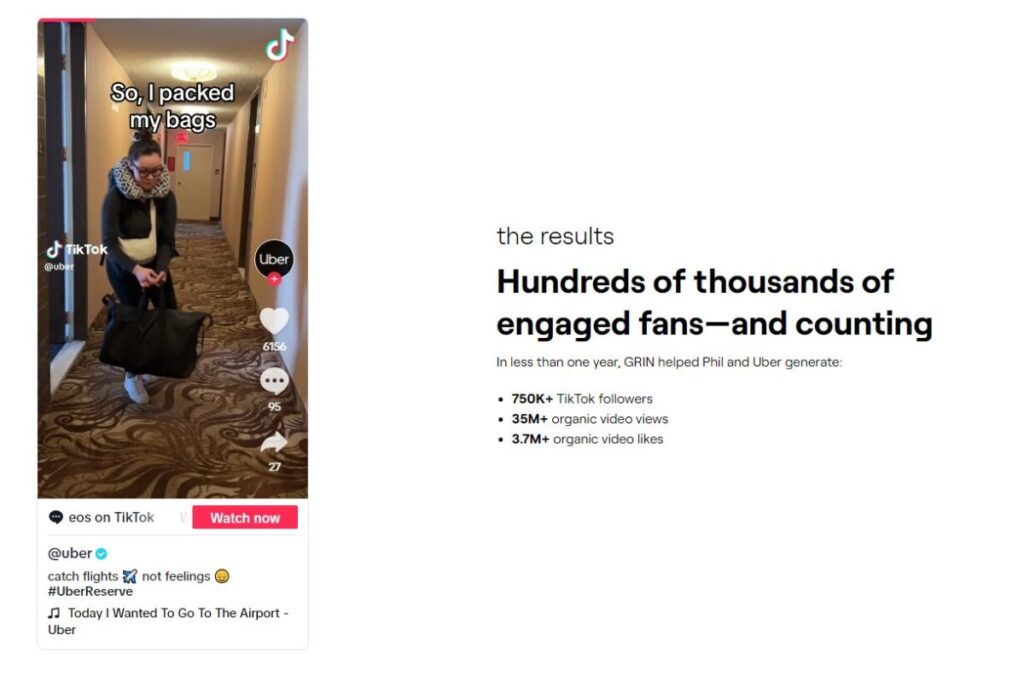
- Health and Wellness Brands: The personal nature of health and wellness topics makes micro-influencers particularly effective in this industry. They can share their experiences and results, creating a trustworthy narrative around a brand's products. Through their journey, they can inspire and motivate others, establishing a loyal and engaged audience interested in health and wellness advancements. Plus, their recommendations can carry significant weight, driving trial and adoption of new products. An example is Insense's collaboration with Diet Smoke, a wellness brand looking to promote its premium gummy products. Through influencer collaborations and partnerships, they achieved an impressive CPC of $0.33 with TikTok's Spark Ads.

- Food and Beverage Companies: Foodies and culinary influencers can showcase a brand's products in a relatable and appetizing way, making them perfect for food and beverage companies looking to increase their product appeal. They can create a sense of community around a brand by sharing recipes, tips, and food-pairing ideas. Their content can also highlight the quality and sourcing of ingredients, appealing to conscious consumers. Again, there's no shortage of success stories showcasing the effectiveness of influencer marketing in the food and beverage industry. Take Upfluence as an example. In their collaboration with TROPICO, a French non-carbonated drinks brand, they managed to improve their social media visibility, engagement, and, ultimately, their global reach, all thanks to expertly selected micro influencer partnerships.
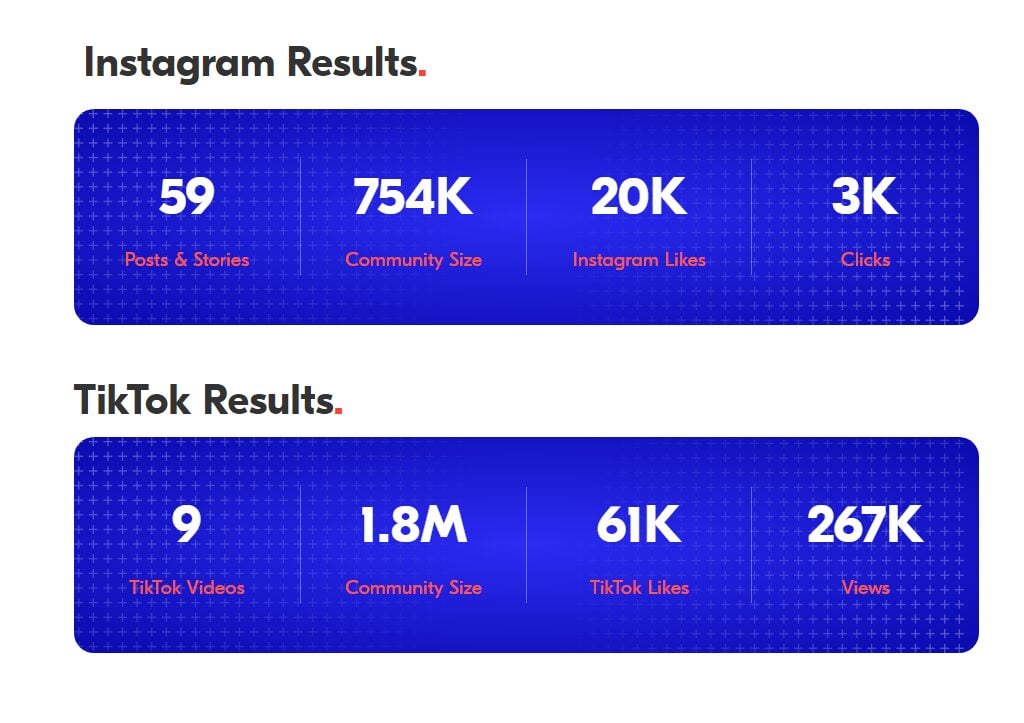
- Travel and Hospitality Businesses: Travel micro-influencers can provide authentic insights into destinations, accommodations, and experiences, making them valuable for businesses in the travel and hospitality sector. They can offer unique perspectives and tips, making travel more accessible and inspiring to their followers. By capturing and sharing their experiences, they help brands create a more compelling and aspirational image. A perfect example is IZEA's collaboration with Visit Tampa Bay to showcase a unique tourist destination. You can find more details about the collaboration by watching the video below.
As always, the results speak for themselves.
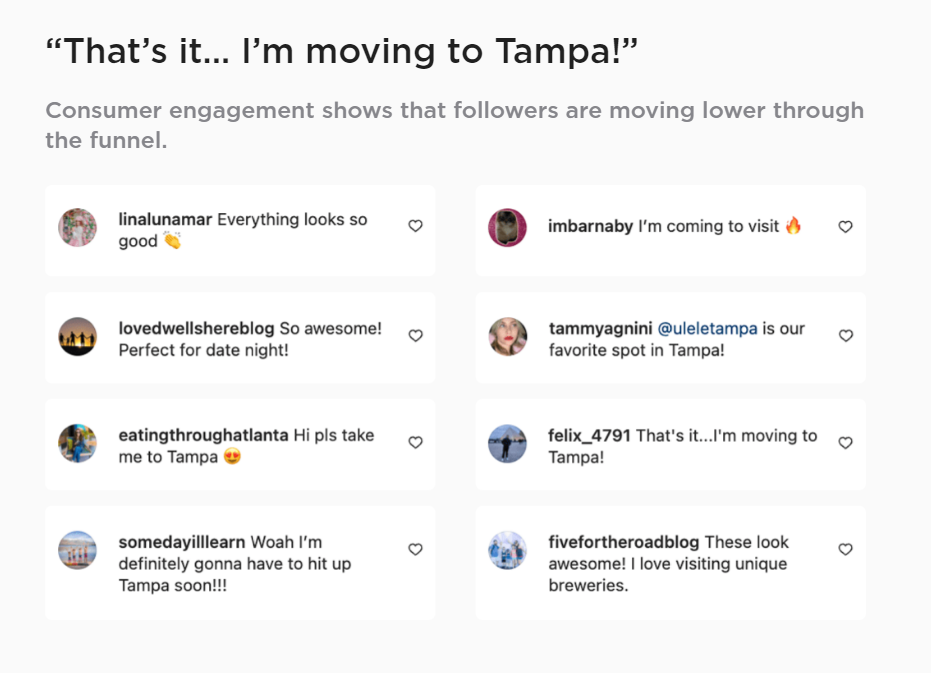
How to Measure the Success of Your Micro-Influencer Campaigns?
When assessing the impact of micro-influencer campaigns, a multifaceted approach is crucial. Here’s how you can add depth to the evaluation process:
Engagement Metrics
Look beyond mere likes and comments; analyze the engagement rate in the context of audience size and post frequency. High-quality interactions often translate to a more invested audience, indicative of a successful campaign. Consider the relevance of interactions by analyzing the sentiment and contextual relevance of comments and shares. You can do that with a tool like Brand24, which offers brand monitoring, sentiment analysis, and detailed reporting capabilities. Also, you can track changes in social media engagement over time to understand the long-term impact of your campaigns and identify trends or patterns in audience behavior. Some tools to help you do that include Brandwatch and Agorapulse.
Customer Acquisition
Go further than tallying new customers. Scrutinize the longevity and lifetime value of customers brought in through influencers, as well as their subsequent brand loyalty and advocacy. Track the referral paths and conversion rates to understand how effectively influencers are driving traffic to your products or services. Compare the acquisition costs and performance of influencer-led campaigns against other marketing channels for a comprehensive view.
ROI Analysis
Dissect the return on investment not just through immediate sales but also by considering long-term brand value and customer retention rates. Understanding the financial nuances can reveal the true profitability of influencer partnerships. Factor in both tangible and intangible benefits, such as increased brand awareness and improved brand perception. Regularly recalibrate your measurement criteria to stay aligned with evolving market conditions and business objectives. Fortunately, micro-influencer platforms do all that for you.
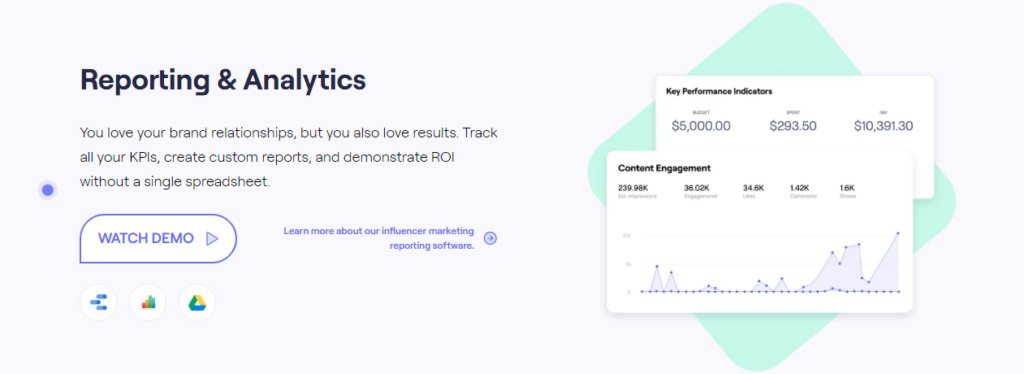
Repeat Collaborations
Evaluate the effectiveness of ongoing partnerships with influencers. Consistent collaborations may lead to compounded trust from the audience, creating a more receptive base for your messaging. Assess the growth and evolution of the influencer’s audience over time to ensure alignment with your target demographic. Monitor the freshness and creativity of content in repeat collaborations to avoid audience fatigue.
Platform Performance
Influencer Selection
Establish a dynamic process for selecting influencers, incorporating data-driven insights and evolving criteria that reflect your brand’s current direction and values. Regularly review and update your selection criteria based on campaign performance and market changes. Engage in thorough vetting processes that consider the influencer’s content quality, audience demographics, and alignment with your brand ethos to ensure a successful outcome. Fortunately, again, that's what influencer marketing platforms are for! Regardless of your niche, values, and the direction you want to go in, these platforms streamline the influencer marketing selection process. Whether it is the 20,000+ vetted influences at Insense, Kittly's 17,000+ creators, or the 650,000+ creators at IZEA, these platforms make selection a breeze.
Methodology
In our quest to identify the leaders in micro-influencer marketing, our team has meticulously evaluated a significant number of platforms, drawing on more than six years of extensive experience in the influencer marketing realm. This comprehensive review process involved analyzing a multitude of factors specifically tailored to micro-influencer dynamics, including platform reach, influencer authenticity, campaign success rates, pricing flexibility, client testimonials, innovative strategies, and overall platform robustness.
Our focus on these key areas, coupled with an expert rating system, has culminated in a list that represents the pinnacle of micro-influencer marketing platforms. These platforms not only excel in connecting brands with the right voices but also consistently demonstrate the ability to adapt and thrive in the ever-evolving landscape of digital marketing, ensuring impactful, authentic, and cost-effective collaborations.
Conclusion
The world of micro-influencer platforms offers a diverse range of opportunities for brands aiming to deepen their market impact. These top 12 platforms stand out for their ability to connect brands with the right influencers, ensuring authentic engagement and targeted reach.
Whether you're a small business or a large corporation, leveraging these platforms can significantly enhance your marketing efforts. Always remember that the key to successful influencer marketing lies in choosing a platform that aligns with your brand values and audience.
Frequently Asked Questions
Exploring Micro Influencer Marketing Tools
These platforms offer a wide variety of features, including creator discovery, campaign management, performance analytics, and marketplace access, to help you streamline your marketing efforts. Explore the sections below for an overview of micro influencer marketing tools for viral influencer campaigns:
- Top Micro-Influencer Agencies Every Brand Should Know About
- Top 17 Nano Influencer Marketing Agencies
- 12 FREE Influencer Marketing Tools to Find Influencers
- 18 Best Influencer Marketplaces to Bolster Your Campaigns
- 23 US-Based Influencer Marketing Platforms
- Top 11 Influencer Apps for Brand Collaborations
- Top 21 Influencer Marketing Tools for Instagram to Try
- Top 16 Influencer Marketing Agencies Shining in LA
What is a micro-influencer platform?
A micro-influencer platform is an online ecosystem that connects brands with micro-influencers. These influencers, typically having between 10,000 and 100,000 followers, offer brands a highly engaged audience with specific interests or niches. The platforms streamline the entire marketing process – from identifying suitable influencers to executing and tracking campaigns. They are invaluable for brands targeting precise demographics, ensuring authenticity and effectiveness in marketing messages.
How many followers do you need to be a micro-influencer?
Micro-influencers are generally characterized by having a follower count ranging from 10,000 to 100,000 on social media platforms. However, what truly defines micro-influencers is the level of engagement they have with their audience and the specific niche they cater to. These influencers often have a strong, loyal following due to their authenticity and closer connections with their audience.
How does a micro-influencer platform select and vet influencers?
A micro-influencer platform typically selects and vets influencers based on factors such as niche relevance, engagement rates, audience demographics, content quality, and authenticity. Many platforms also conduct background checks to ensure influencers meet certain ethical standards and have a genuine following.
What features should brands look for when choosing a micro-influencer platform?
When choosing a micro-influencer platform, brands should look for features such as robust analytics, ease of campaign management, a wide selection of influencers across various niches, tools for communication and negotiation, and strong tracking capabilities to measure campaign impact.


